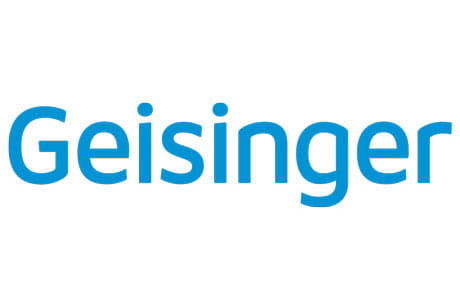Geisinger researchers lead critical review of evidence for ‘autism-specific genes’
Commentary published in the American Journal of Human Genetics
After reviewing the findings and limitations of recent studies that attempted to identify autism-specific genes, the team concluded that there is insufficient evidence to establish meaningful autism specificity of any genes, and that the genes that cause autism are the same genes that cause other brain disorders.
“We disagree with the claims that current evidence shows the existence of autism-specific genes,” said David Ledbetter, Ph.D., executive vice president and chief scientific officer for Geisinger. “To date, every gene identified as a cause of autism also causes intellectual disability in a high percentage of individuals.”
The team, part of Geisinger’s Autism & Developmental Medicine Institute, published a commentary on their findings in the American Journal of Human Genetics in May.
Advances in genetic testing technology have made it possible to identify a genetic cause in more than 25 percent of people with autism. These DNA changes, which cause loss of normal function of the gene, are individually rare, but as a group they are common. Recent studies have claimed that DNA changes in certain genes may be specific to autism, and therefore might provide important clues to the underlying biology of the condition. However, DNA changes in these same genes have been found in other neurodevelopmental disorders, including intellectual disability.
“Genes don’t read our clinical diagnostic manuals, so they don’t respect the categorical diagnostic boundaries between autism, intellectual disability, epilepsy, and other neurodevelopmental disorders,” said Scott Myers, M.D., associate professor for Geisinger’s Autism & Developmental Medicine Institute. “Even in the same family, individuals with the same DNA change can have different neurodevelopmental diagnoses.”
Broad genetic tests, such as exome sequencing and chromosomal microarray, are used to identify the underlying causes of autism and other neurodevelopmental disorders, and the team determined there is no advantage to testing for DNA changes in a more limited panel of “autism-specific” genes.
About Geisinger
Geisinger is among the nation’s leading providers of value-based care, serving 1.2 million people in urban and rural communities across Pennsylvania. Founded in 1915 by philanthropist Abigail Geisinger, the non-profit system generates $10 billion in annual revenues across 134 care sites - including 10 hospital campuses, and Geisinger Health Plan, with 600,000 members in commercial and government plans. The Geisinger College of Health Sciences educates more than 5,000 medical professionals annually and conducts more than 1,400 clinical research studies. With 26,000 employees, including 1,600 employed physicians, Geisinger is among Pennsylvania’s largest employers with an estimated economic impact of $14 billion to the state’s economy. On March 31, 2024, Geisinger became the first member of Risant Health, a new nonprofit charitable organization created to expand and accelerate value-based care across the country. Learn more at geisinger.org or connect with us on Facebook, Instagram, LinkedIn and X.

For media inquiries:
Ashley Andyshak Hayes
Marketing Strategist
Marketing & Communications
570-271-8081
arandyshakhayes@geisinger.edu
